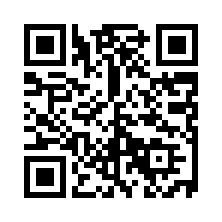Lay or Lie
"Lay" and "lie" are two commonly confused verbs.
Even native English speakers get these two verbs mixed up.
These two verbs have similar meaning, but "lay" need a direct object, while "lie" doesn't.
The past tense of "lie" is "lay". It can make things even more confusing.
Past simple and past participle of "lay" and "lie".
The Three Verbs at a Glance
| Verb | Base Form | Past Simple | Past Participle | Example | |
|---|---|---|---|---|---|
| Lie (falsehood) | lie | lied | lied | He lied about his age. | |
| Lie (recline) | lie | lay | lain | I lay on the couch. | |
| Lay (place) | lay | laid | laid | I laid the books down. |
Lie – To Tell a Falsehood
to tell a falsehood
lie, lied, lied
This meaning of "lie" usually don't have any problem.
- Present: I lie to my parents.
- Past: She lied to the teacher.
- Past participle: They have lied again.
Lie – To Recline (Intransitive)
to recline
lie, lay, lain
- Present: I lie on the bed.
- Past: Yesterday, I lay in the sun.
- Past Participle: She has lain there for hours.
- Present Participle: lying
Note: “ie” becomes “y” in the participle — e.g., lying on the sofa.
Lay – To Put or Place (Transitive)
Lay means to put something/someone down.
lay, laid, laid
- Present: I lay the keys on the counter.
- Past: He laid the towel on the chair.
- Past Participle: They have laid the baby down.
Examples:
- The children lay their toys on the floor.
- She lays her phone on the table.
- You can't say "He lays on the ground" —no object present.
- Say: "He lies on the ground." ✔️
Differences between "lay" and "lie" :
"Lay" is a transitive verb. That means "lay" needs a direct object.
"Lie" is an intransitive verb. It does not need an object.
e.g.
He lays his phone on the ground.
"his phone" is the direct object.
The children lay their toys on the floor.
"their toys" is the direct object.
Because "lay" need a direct object.
You can't say "He lays on the ground" because there is no direct object mentioned.
But, you can say "He lies on the ground."
Or, in past tense "He lay on the ground yesterday."
The present participle of "lie" is "lying". The "ie" has to change to "y".
E.g.
He spends all day lying on the sofa.
Quiz
Exercise: 90 Most Common English Verbs
